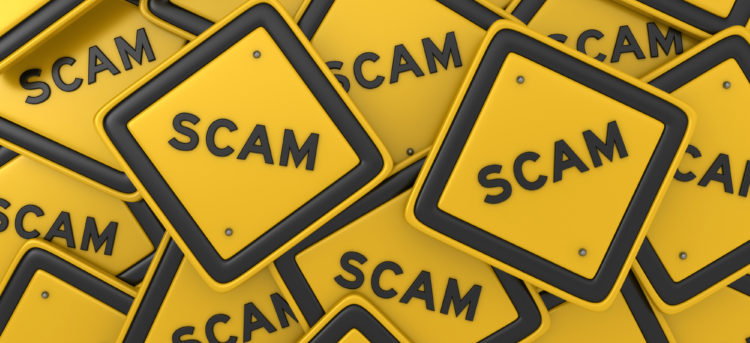As individuals and small businesses, as often happens in crisis situations like we’re faced with right now, scammers tend to rear their ugly heads to take advantage of people who are vulnerable and frustrated. Many of the tactics you may have even seen before, but because of the crisis, we are more susceptible because they promise information or remedies that we want to believe in. Here are some of the coronavirus scams to avoid.
Don’t respond to emails, texts, or calls about checks from the government
The Federal Trade Commission says, “Scammers are using these stimulus payments to try to rip people off. They might try to get you to pay a fee to get your stimulus payment. Or they might try to convince you to give them your Social Security number, bank account, or government benefits debit card account number.”
The FTC offers some pretty succinct advice:
- Only use irs.gov/coronavirus to submit information to the IRS—and never in response to a call, text, or email.
- The IRS won’t contact you by phone, email, text message, or social media with information about your stimulus payment, or to ask you for your Social Security number, bank account, or government benefits debit card account number. Anyone who does is a scammer phishing for your personal information.
- You don’t have to pay to get your stimulus money.
- The IRS won’t tell you to deposit your stimulus check then send them money back because they paid you more than the owed you. That’s a fake check scam.
Ignore online offers for vaccinations:
There are currently no products proven to treat or prevent COVID-19 at this time. The FTC warns that, “There currently are no vaccines, pills, potions, lotions, lozenges or other over-the-counter products available to treat or cure Coronavirus disease 2019 (COVID-19)—online or in stores.”
Hang up on robocalls:
Scammers are using illegal robocalls to pitch everything from low-priced health insurance to work-at-home schemes. Don’t engage with these callers. Just hang up.
Be wary of ads for coronavirus test kits:
The FDA recently announced approval for one home test kit, which requires a doctor’s order. But most of the text kits being advertised have NOT been approved by the FDA, and may not be accurate.
Watch for emails claiming to be from the CDC or WHO:
Use sites like coronavirus.gov and usa.gov/coronavirus to get the latest information. Beware of links from sources you don’t know.
Avoid donation scams:
Make sure you do your homework before you donate anything to a coronavirus charity. Never donate in cash. Use a gift card or wire the money.
Avoid mobile malware:
A number of malware has been disguised as mobile apps to either help you track the virus on your phone, follow coronavirus-related news, etc. Avoid downloading apps from random coronavirus-related websites, stick to an official app store to minimize the risk.
Watch out for fraudulent websites:
There are a couple of primary tactics being used by scammers right now:
- IT-themed websites that offer to help you work remotely during the crisis
- Coronavirus-themed sites that claim to help you track the disease or help those who have been infected.
“The problem is that scammers re tracking which companies are requiring their employees to work from home and jumping on the chance to trick those employees into giving up information and downloading malware by posing as IT help desk agents,” says Attila Tomaschek, a researcher at ProPrivacy, a network security company.
“Fake coronavirus sites are another problem. They’re 50% more likely to be fraudulent than a regular site,” says Check Point Software Technologies.
If you aren’t sure about the legitimacy of a site, beware.
Avoid “safe” or “guaranteed” investments:
Scammers often promise higher-return investments they claim are safe from downturns in the market due to the pandemic. If it sounds like it’s too good to be true, it probably is. Unless your advisor is putting your money into an FDIC-insured bank account, and promise of gains without the possibility of loss are not genuine.
The Bottom Line
Scammers prey on the under-informed and scared. Make sure you validate and look to see where emails are coming from, avoid websites you don’t recognize, and charities you are unfamiliar with. These criminals are pretty sophisticated and can even sound pretty convincing over the phone. When in doubt, don’t respond. Assume anything unsolicited is a scam. And, don’t be afraid to report a suspected scam to the authorities.
This article was originally written on May 5, 2020 and updated on May 18, 2020.

Have at it! We'd love to hear from you and encourage a lively discussion among our users. Please help us keep our site clean and protect yourself. Refrain from posting overtly promotional content, and avoid disclosing personal information such as bank account or phone numbers.
Reviews Disclosure: The responses below are not provided or commissioned by the credit card, financing and service companies that appear on this site. Responses have not been reviewed, approved or otherwise endorsed by the credit card, financing and service companies and it is not their responsibility to ensure all posts and/or questions are answered.